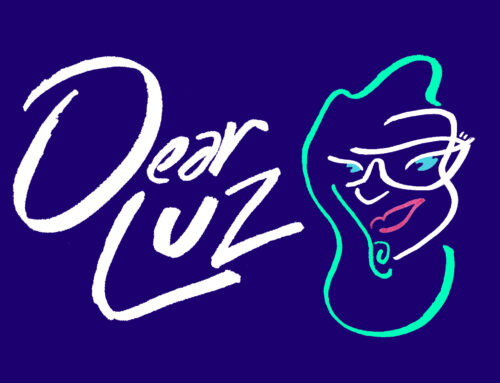Here’s how you can go to school without going to school.
Writing by Kayla Schmidt
Artwork by Anne Kennedy
Have you ever wanted to learn the inner workings of an electrolytic cell? How to make the perfect crème brûlée? Or how to solve a quadratic equation with your eyes closed? Well, you’re in luck. With just a few clicks of your mouse, you can sign up for a free online college course that will teach you anything under the sun.
These classes, available from prestigious universities like Harvard and Stanford, are open to everyone, even high school students, enabling us to expand our knowledge about topics we find intriguing, clarify a confusing subject from the school year, or explore an obscure concept we previously found inaccessible. Whatever the reason, there is certainly a course out there for you.
MOOC 101
Massive Open Online Courses (MOOC) have been around for years, but they gained popularity when the world shut down five years ago. Back in 2020, when we were all quarantined in our homes, word spread that you could access a free education from your couch, and MOOC registrations soared. The trend continued after the world reopened, and for good reason. These courses vary from broad intro-level classes to specific in-depth courses on obscure subjects. And by “understudied subjects,” I don’t mean geometry (because who really studies that in the real world); I mean truly obscure.
Here are some of my personal favorites:
- Matrix Calculus for Machine Learning and Beyond (MIT)
- Multimodal Literacies: Communication and Learning in the Era of Digital Media (University of Illinois)
- Orthogonality and Symmetric Matrices and the SVD (Georgia Tech)
- PredictionX: Omens, Oracles & Prophecies (Harvard University)
- The Science of Happiness (UC Berkeley)
You can find these courses—along with more common topics like Sports Marketing (Northwestern), American Government (Harvard) and Writing in the Sciences (Stanford)—on platforms like edX or Coursera. “Many students are taking these courses to enhance their reservoir of knowledge,” says Caitlin Read, dean of enrollment management at Purchase College SUNY. “It’s a great way to further develop your interest in a topic and discover what you are capable of.”
But the real beauty of these courses is that because they’re online and free, there is nothing wrong with dropping a class after a few sessions if you feel it’s not the right fit. You could even pause a course to switch into its introductory class first before resuming the more advanced level.
“Most of these courses are self-paced, so if a student doesn’t like it or doesn’t understand it, they can easily stop,” says Deborah Hardy, EdD, founder of GuidED Consulting, an educational consultant and former school counselor. “It’s a worthwhile experience regardless, so there really is no harm.”
Hardy also notes the valuable insight these courses offer about the college experience. “While some of the courses are unique, most of them are courses offered at the university and taught by that professor,” Hardy explains. “They’ll help you understand the difference between high school and college-level courses, and they might be able to modify the course for you if requested.”
Learn how to learn
Besides alleviating summer boredom, these courses offer further benefits, like cultivating self-reliance. Unlike a typical college course, MOOCs allow you to choose when you take each lesson, granting you the freedom and flexibility to learn in a way that works for you. In turn, this structure requires you to hold yourself accountable.
“The way the curriculum is structured is extremely beneficial,” Hardy explains. “It makes the student an independent learner, which is a skill you should learn in high school. You’ll learn how to manage the task at hand and also pose a lot of questions that you might not have thought about, because the professor will give you many opportunities to do so, and you’ll be learning how to look at things differently.”
While these courses won’t be the reason you do or don’t get into your dream college, Hardy says becoming an independent learner is a critical skill to develop because it’s something students are expected to do throughout college. Plus, taking these courses demonstrates your initiative and curiosity. “They’re a way to demonstrate a productive use of your time outside of school. It shows that you’re pursuing your interests with intention.”
Carve your path
Many high school students have absolutely no clue what they want to do with their life—after all, our brains aren’t even fully developed until after college (if you’re wondering, it happens around age 25). Fortunately, these free online college courses can help you find your path.
“It can certainly help a student dive deeper into their interests and perhaps clarify the direction they would like to take their education,” says Read. “And they may provide more clarity about what area in a particular field interests them because they have the opportunity to take more in-depth coursework in advance.”
Plus, enrolling in concentrated or specialty courses can expand your knowledge beyond what you’re taught in school. Maybe you will realize you want to be an art therapist or master distiller because of a course you took online.
“These are valuable opportunities,” says Hardy, “and it’s not because of which college is offering it—it’s because students will explore their interests ahead of time as they’re building self-awareness of what they want to do. It also gives you a chance to not just focus on very ‘typical’ careers. There are courses about AI learning and health or technology and policymaking, so it takes the topic to another level instead of just the standard courses.”
Clearly, there is a world full of opportunities and experiences to build upon your knowledge, so if you’re sitting at home bored this summer, consider enrolling in one of these courses. And who knows, by the end of the summer, you could be a Tai Chi-loving Ebola expert who can also discuss Beethoven’s 9th Symphony while solving complex calculus equations.
This article was published in the July/August 2025 edition of Connect to Northern Westchester.









